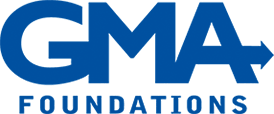Foundation trustees and other donors often ask us what their peers are doing, how they are meeting common challenges. In the past weeks, we have witnessed our clients overcome procedural hurdles to consider their own roles in the pandemic and respond. These donors’ rapid responses to COVID-19 crisis show urgency, flexibility, intelligence, and compassion.
We hope that this outline of some of GMA Foundation’s clients‘ actions is interesting, inspiring, and an invitation to connect with us to learn more or to discuss your own response. Note: we are updating this list occasionally to reflect some new decisions.
Emergency grants
The geographically-dispersed trustees of an anonymous family foundation allocated $50,000 for food banks in their family members’ cities, from Florida and Washington DC to New York, Massachusetts, Pennsylvania, Illinois, and Ontario.
The Beveridge Family Foundation is diverting $200,000 from its regular grants budget to emergency response. On March 20, the trustees made a $100,000 grant to the Community Foundation of Western Mass’ COVID-19 Response Fund for the Pioneer Valley.
The Rabbi Abraham Halbfinger and Charlesview Charitable Fund has collaborated with the Allston Village and Brighton Main Streets to seed a worker relief fund for undocumented residents who have been laid off. Charlesview is also collaborating with the YMCA to offer grab and go meals for children in Allston-Brighton, and with the Health Collaborative to provide front-line staff with thank you gifts.
The Celia Lipton and Victor W. Farris Foundation recognized an urgent shift in priorities and paused their Professional Development and Wellness Initiative for mental health professionals. Instead, the board made 19 emergency grants totaling $420,000 for general operating support to front-line organizations; they will consider additional emergency response grants later this year. The Farris Foundation also released restrictions on ongoing grants.
The Fuller Foundation has allocated ten percent of its grant budget to COVID-19 response, and will be flexible with other grants.
The Lookout Foundation will make emergency operating grants of $30,000 each to 20 key nonprofit partners. There is no proposal or reporting requirement.
The Nordblom Family Foundation has made a $100,000 grant to the COVID-19 Response Fund at the Boston Foundation.
The Samuel P. Pardoe Foundation has granted $100,000 to the Granite United Way; 70 per cent of the grant will be distributed directly to individuals and families in the Lakes region of New Hampshire with the remainder to individuals in need throughout the state.
The Theodore Edson Parker Foundation has made emergency grants to two Lowell, MA organizations that target particularly vulnerable populations (1) who are further isolated due to virus-related concerns, particularly seniors and those with disabilities or medical conditions, and (2) who are ineligible to receive COVID-19 government support, such as undocumented immigrants and refugees.
The Mabel Louise Riley Foundation has made $50,000 grants to each of four special funds: the COVID-19 Response Fund at the Boston Foundation, the City of Boston’s Resiliency Fund, the Massachusetts Covid-19 Relief Fund, and United Way of Massachusetts Bay and Merrimack Valley’s COVID-19 Family Support Fund.
The Wellington Management Foundation’s response to the crisis has been simple and swift—emergency funds of $25,000 available to each of their 96 current grantees, approved within just a few days and based on a single page overview of unanticipated programming costs and fundraising losses. The Foundation has made 41 unrestricted grants so far in North America and Asia/Pacific, and in the UK and Europe, the Wellington Management UK Foundation is offering a 50 percent increase in regular annual funding to all 25 of their grantees.
Flexibility
Funders immediately recognized nonprofit organizations’ need for flexibility. Our grantmaking clients have:
- been flexible to request for extensions and proactively offered flexibility–lifting deadlines and reporting requirements.
- called front-line organizations to learn of their crisis-related financial needs, to be responsive as needs arise, and to assure them of support.
- accelerated the timing of regular grants cycles in order to disburse funds more quickly.
- replaced checks with wire transfers, and modified their operations for remote work.
Cancelled events
Our clients have also found opportunity in the unfortunate cancellation of in-person events.
- Rather than accept a refund of deposits paid for a family retreat, one Executive Director asked hotel management to distribute the dollars to its employees.
- Foundation trustees who had planned to attend a national conference along with dozens of nonprofit leaders worked to convert the grants made for conference attendance into operating support for the would-be participants’ organizations.
Funder Resources
In a brief advisory, Responding to COVID-19 Crisis, GMA offers a framework for foundations and giving programs joining as first responders, acting in ways that show urgency, flexibility, intelligence, and compassion.
COVID-19 Resources for Crisis Funding highlights the philanthropic sector’s wealth of information, resources, and special funds. In addition to these primary resources, we would be glad to point you to specific funds, advisories, or groups that align with your interests or geographic focus.
Contact your GMA team or Mary Phillips to discuss a philanthropic response to the pandemic.
